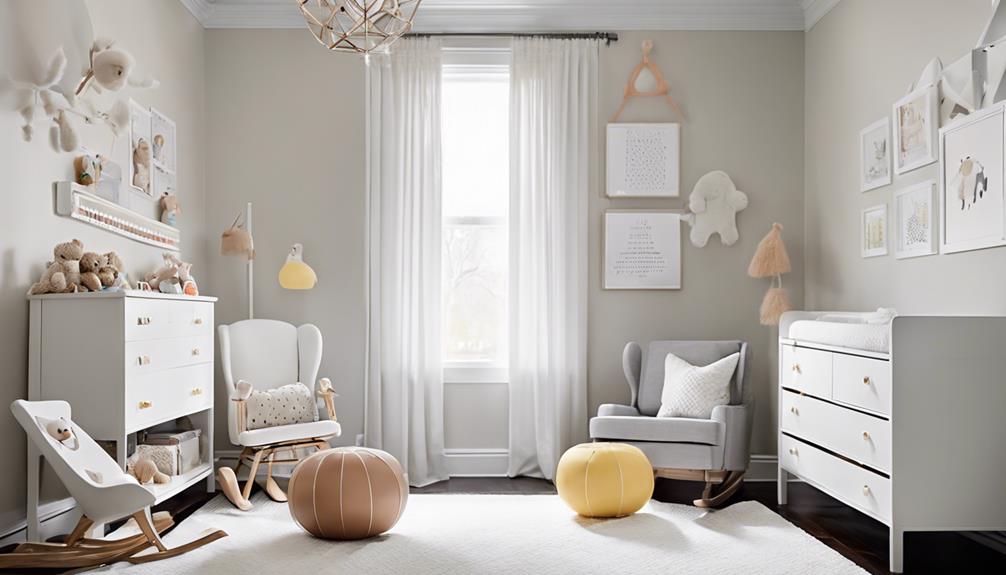For a successful job interview, you need to pack some key essentials. Start with five tailored copies of your resume and a customized cover letter that highlights your skills. Dress appropriately for the company culture—think polished and professional. Prepare for common questions using the STAR method and bring a notepad and pen for notes. Don't forget a water bottle to stay hydrated and mints for fresh breath. Also, plan thoughtful questions to ask the interviewer about team dynamics and growth opportunities. If you focus on these essentials, you'll be ready to impress and show you mean business!
Key Takeaways
- Prepare tailored resumes and a customized cover letter to highlight relevant skills and experiences for the job.
- Dress appropriately for the company culture, opting for polished business formal or smart casual attire.
- Research the company's mission, values, and recent news to demonstrate genuine interest during the interview.
- Carry essential personal items like a professional pen, notepad, and water bottle to stay organized and hydrated.
- Prepare thoughtful questions for the interviewer about team dynamics, growth opportunities, and role responsibilities.
Essential Documents
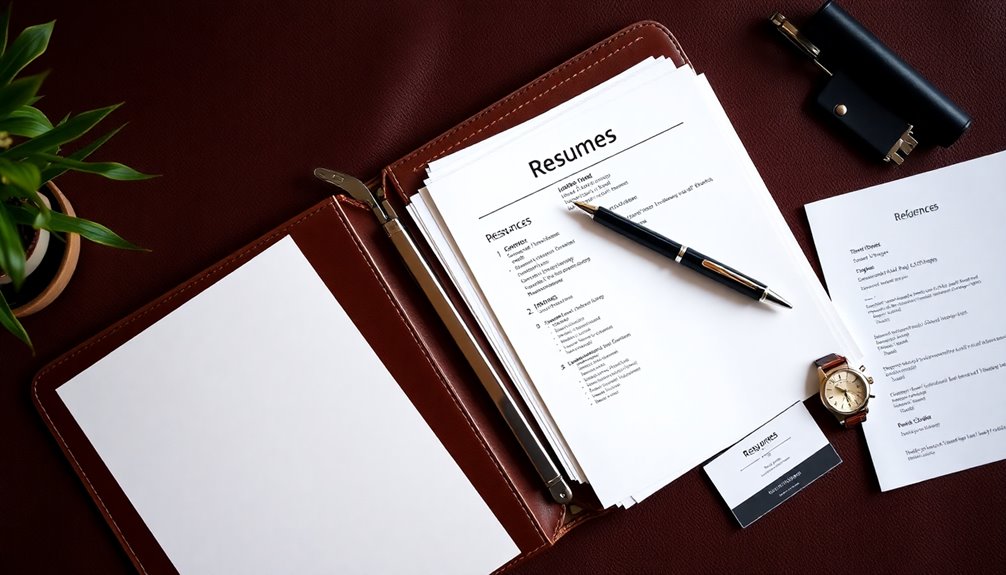
When preparing for a job interview, having the right essential documents can make all the difference. Start with several copies of your resume—at least five—tailored to the job you're applying for.
Don't forget a customized cover letter that highlights your relevant skills. Prepare a list of professional references, avoiding family and friends; format it neatly with names, titles, organizations, and contact information. Make sure your references are informed beforehand.
If applicable, bring any relevant certifications or licenses. Finally, consider including a portfolio showcasing your work samples, ensuring everything is organized and presentable.
With these documents in hand, you'll feel more confident and ready to impress your potential employer.
Professional Attire
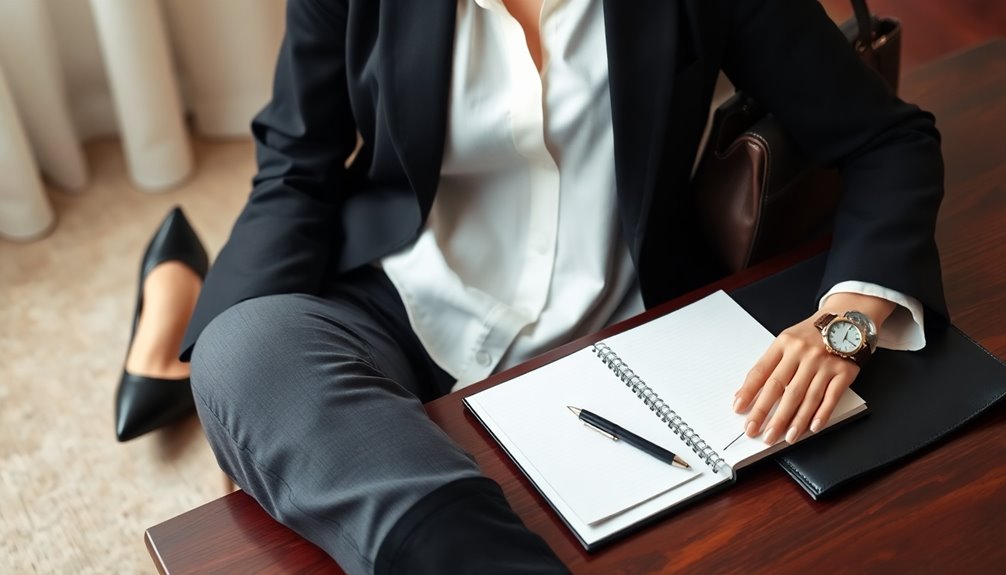
Professional attire plays an essential role in making a strong first impression during a job interview. You want to dress appropriately for the company culture, so research their dress code beforehand.
Aim for a polished and professional look, which often means wearing business formal or smart casual attire. Your grooming should also reflect your professionalism; maintain neat hair and personal hygiene.
Keep accessories minimal to avoid distractions, and choose comfortable yet professional footwear. Remember to dress for the weather to guarantee you're comfortable throughout the interview.
Ultimately, your appearance should enhance your confidence and let your qualifications shine, reinforcing that you're serious about the opportunity. Make certain your attire aligns with the role you're applying for. Additionally, understanding the importance of first impressions can significantly influence the interviewer's perception of you.
Interview Preparation
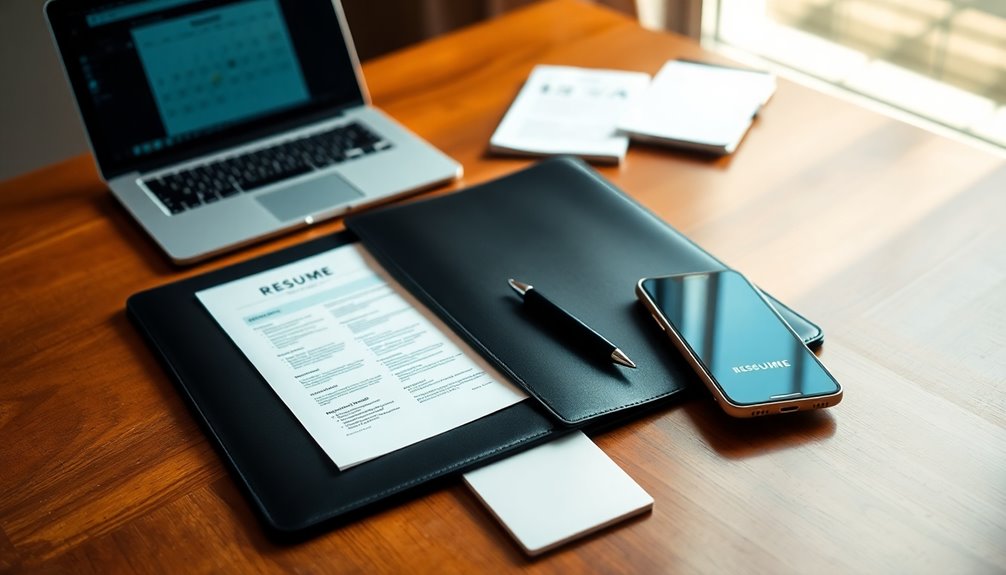
Mastering interview preparation can set you apart from other candidates and boost your confidence. Start by researching the company's mission, values, and recent news to show your genuine interest.
Familiarize yourself with the job description and requirements to align your skills with the role. Practice common interview questions using the STAR Method to articulate your experiences clearly.
Conduct mock interviews with friends or family to build confidence and receive constructive feedback. Remember to prepare questions to ask the interviewer, focusing on team dynamics and growth opportunities.
This preparation not only demonstrates your enthusiasm but also helps you feel more at ease during the actual interview, making you a standout candidate.
Personal Items
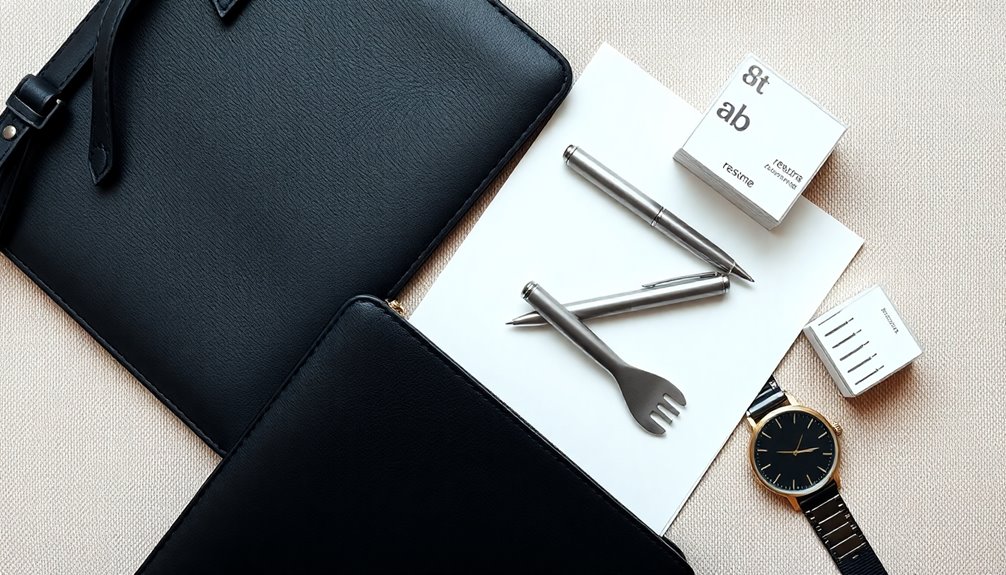
Preparing for an interview goes beyond just knowing your qualifications; it's also about what you bring with you. Personal items can make a significant difference in your confidence and professionalism.
Start with a professional-looking pen and notepad to jot down important points during the discussion. A water bottle helps keep you hydrated, while breath mints or floss guarantee your oral hygiene is in check.
Don't forget your phone—silence it or turn it off to avoid interruptions. If you feel nervous, having a small notebook for additional notes can be comforting.
These simple items not only enhance your preparedness but also help you present yourself as organized and attentive, leaving a positive impression on your interviewer.
Questions for Interviewer
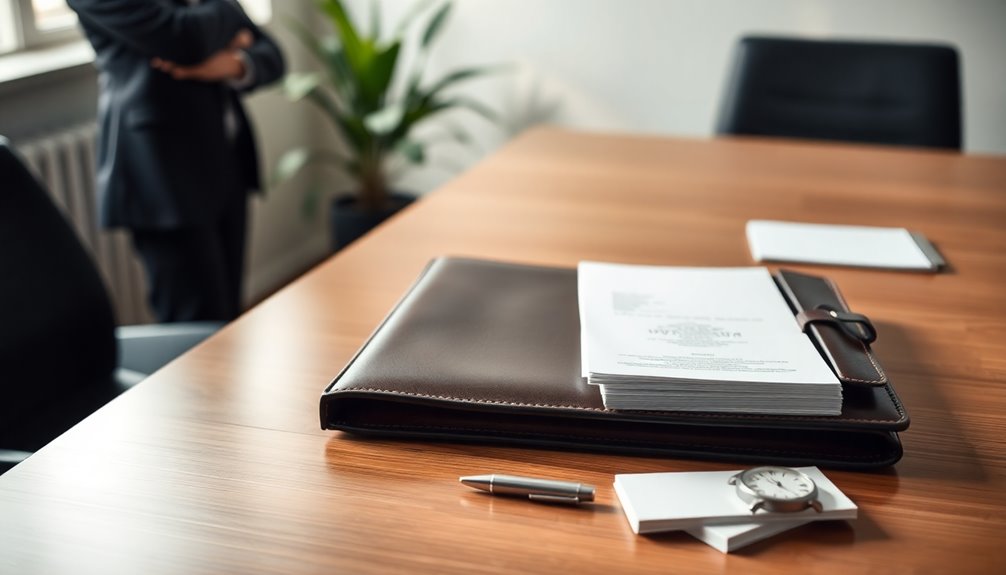
Asking insightful questions during an interview not only demonstrates your interest in the role but also helps you gauge if the company is the right fit for you. Prepare at least two or three questions in advance to make a positive impression. Here are some essential topics to examine:
| Topic | Example Question | Purpose |
|---|---|---|
| Company Culture | What's the team dynamic like? | To understand the work environment |
| Growth Opportunities | Are there opportunities for advancement? | To learn about your career path |
| Performance Metrics | How is success measured in this role? | To clarify expectations and evaluation process |
| Current Challenges | What challenges is the team currently facing? | To get insights into immediate priorities |
| Role Expectations | What are the key responsibilities for this position? | To confirm your understanding of the role |
Confidence Boosters
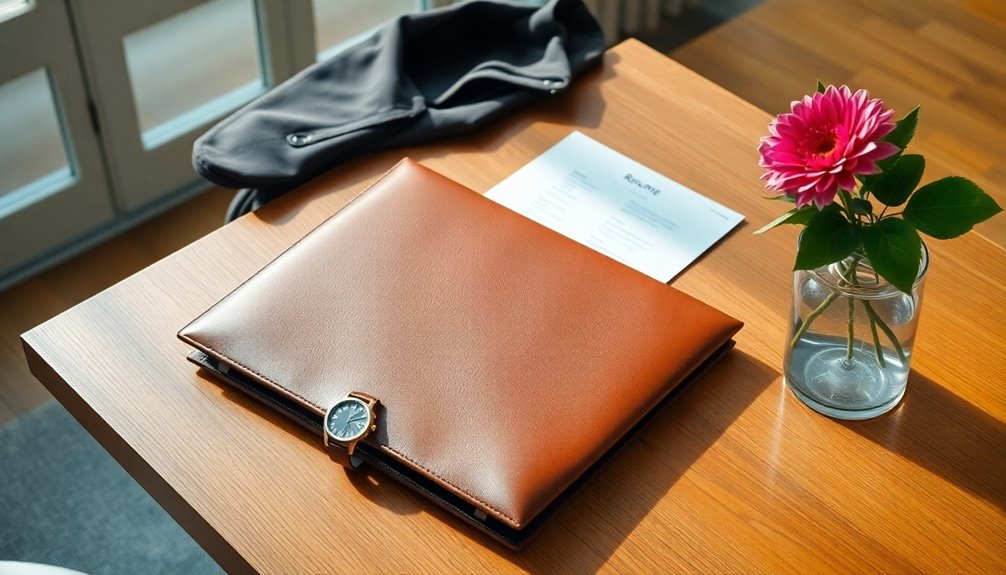
Feeling anxious before a job interview is common, but employing a few confidence boosters can greatly enhance your performance. Here are four effective techniques to help you feel more self-assured:
- Positive Affirmations: Repeat uplifting statements about your skills and qualifications to build self-esteem.
- Visualization: Close your eyes and picture yourself acing the interview, which can reduce anxiety and boost your confidence.
- Deep Breathing: Take slow, deep breaths to calm your nerves, focusing on your inhalations and exhalations.
- Dress Comfortably: Wear professional attire that fits well, ensuring you're comfortable and distraction-free during the interview.
Follow-Up Actions
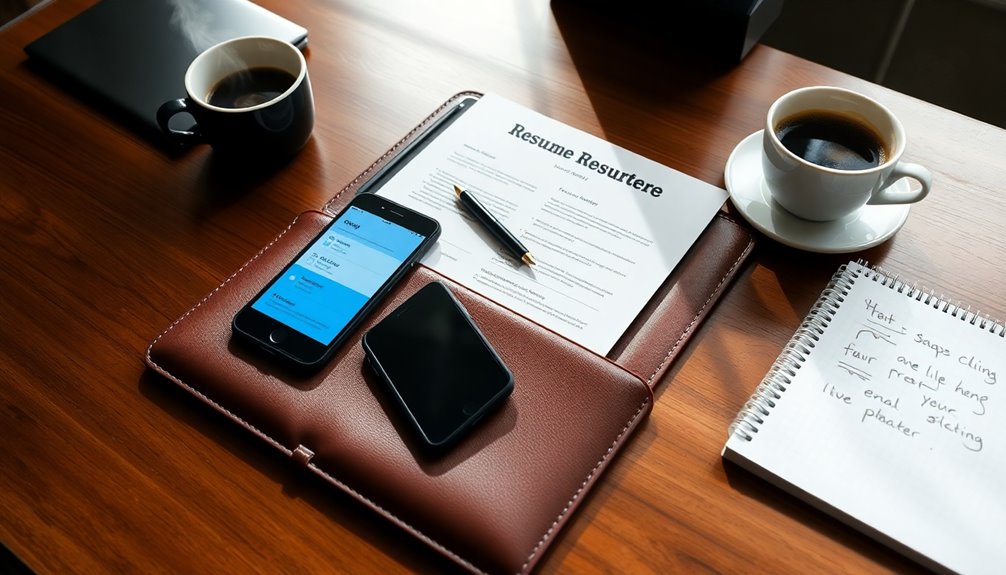
After your interview, it's important to keep the momentum going with effective follow-up actions.
Start by sending a personalized thank-you note within 24 hours. This not only shows gratitude but also reinforces your interest in the position.
If you haven't heard back within a week or two, don't hesitate to follow up on the status of your application. It demonstrates initiative and enthusiasm.
If you weren't selected, politely request feedback; it helps you learn and grow for future opportunities.
Additionally, consider connecting with your interviewers on professional networking sites to maintain relationships.
Each of these actions can enhance your professional presence and potentially open doors for future roles.
Stay proactive; it shows you're genuinely interested in the opportunity.
Frequently Asked Questions
How Early Should I Arrive for the Interview?
You should aim to arrive about 10 to 15 minutes early for your interview. This window gives you time to calm any nerves and gather your thoughts.
It also shows respect for the interviewer's time and demonstrates your punctuality. However, try not to be too early, as it can put pressure on the interviewer.
Plan your route ahead of time to avoid any unexpected delays on the day of the interview.
What Should I Do if I'm Running Late?
Life's curveballs can throw anyone off course, and if you're running late, don't panic.
Quickly call or text the interviewer to inform them of your situation; honesty goes a long way. Apologize for the delay and give an estimated arrival time.
Once you arrive, take a deep breath, regain your composure, and focus on showcasing your skills.
How to Handle Unexpected Questions During the Interview?
When you face unexpected questions during an interview, stay calm and take a moment to think.
It's okay to ask for clarification if needed. Use your experiences to craft a thoughtful response, and don't hesitate to admit if you don't know something—focus on how you'd find the answer instead.
Should I Research the Interviewer Before the Interview?
Absolutely, you should research the interviewer before your meeting.
Studies show that candidates who can reference an interviewer's background or interests increase their chances of making a positive impression by 60%.
By knowing their role and contributions, you can tailor your conversation and build rapport.
It also helps you prepare insightful questions.
This preparation not only shows your interest but can also set you apart from other candidates who mightn't take this extra step.
What if I Don't Have Relevant Work Experience?
If you don't have relevant work experience, focus on transferable skills from other areas of your life, like volunteer work or internships.
Highlight your strengths and emphasize your willingness to learn. You can also discuss projects or coursework that relate to the job.
Show enthusiasm for the role and the company, and be prepared to explain how your unique background can bring value to the position.
Confidence can make a significant difference!
Conclusion
By coming prepared with the essentials and presenting yourself confidently, you'll shine like a star in the night sky during your job interview. Remember, every detail—from your attire to the questions you ask—can make a significant impact. Embrace the preparation process, and don't hesitate to show your enthusiasm for the role. After the interview, a thoughtful follow-up can keep you on the interviewer's radar. With these strategies, you're well on your way to landing that job!

